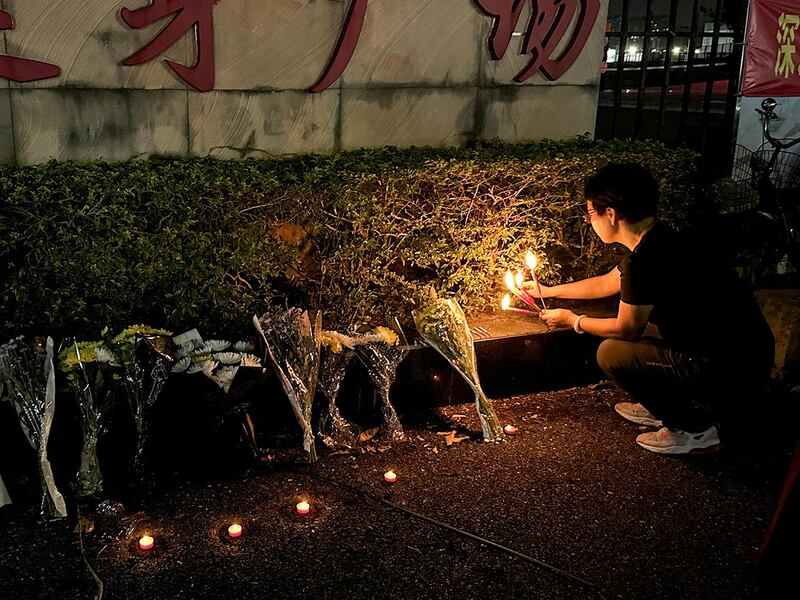China has executed a man for killing at least 35 people with his car at a stadium in the southern city of Zhuhai following a marital breakdown last November, along with a man who stabbed eight to death in a school in Wuxi after failing his final exams.
Fan Weiqiu, 62, was executed by the Zhuhai Intermediate People’s Court on Jan. 20 “in accordance with the execution order issued by the Supreme People’s Court,” state news agency Xinhua reported, adding that the execution was supervised by officials from the state prosecutor’s office.
At least 35 people were killed and 43 injured when Fan rammed his car into a crowd at a stadium in Zhuhai city, prompting a rare call from President Xi Jinping for an investigation, and for the perpetrator to be punished.

The sentences come as the ruling Communist Party counts the cost of a growing number of “social revenge” attacks on members of the public, including the Zhuhai car attack.
Since then, further violence has been making the headlines, including the fatal stabbing of eight people at a vocational college in Wuxi by 21-year-old Xu Jiajin, who was also executed on Monday.
Two rulings
Fan was sentenced to death on Dec. 27, 2024 for “endangering public security by dangerous means,” and accepted the sentence, the agency reported. Police said he had carried out the attack because he was unhappy with his divorce settlement.
“After review by the Guangdong Higher People’s Court, the case was submitted to the Supreme People’s Court for approval,” it said.
The Wuxi Intermediate People’s Court in the eastern province of Jiangsu executed Xu Jiajin on Jan. 20, after allowing him a meeting with his family beforehand, state broadcaster CCTV reported.
RELATED STORIES
China plans big data warning system to prevent public killings
China car killings could spark new round of security measures
China to probe marital, neighbor disputes in wake of car attack
Xu, 21, was handed a death sentence by the court on Dec. 17, 2024, after the court found him guilty of the “intentional homicide” of eight people and the injury of 17 more on the campus of his vocational school in Wuxi on Nov. 16, 2024.
“This was an extremely serious crime, the circumstances and consequences of which were particularly serious,” the report said.
Police said Xu had failed his exams and been unable to graduate, and was dissatisfied with his low pay at an internship.
New security measures
The “revenge” attacks have sparked new security measures, with authorities in Guangdong sending local officials and volunteers to intervene in people’s marital troubles and to mediate disputes between neighbors in the wake of the Zhuhai attack.

The ruling Chinese Communist Party is also stepping up the use of big data to predict people’s behavior in a bid to identify “social risks” and prevent violent attacks on members of the public.
Local officials are being encouraged to set up systems that analyse huge amounts of big data to warn them of potential social tensions and disgruntlement, so they can try to intervene before such crimes are committed.
But analysts have warned that further state-backed intervention in people’s lives could further distort social cohesion and fuel disputes between people.
Translated by Luisetta Mudie.
